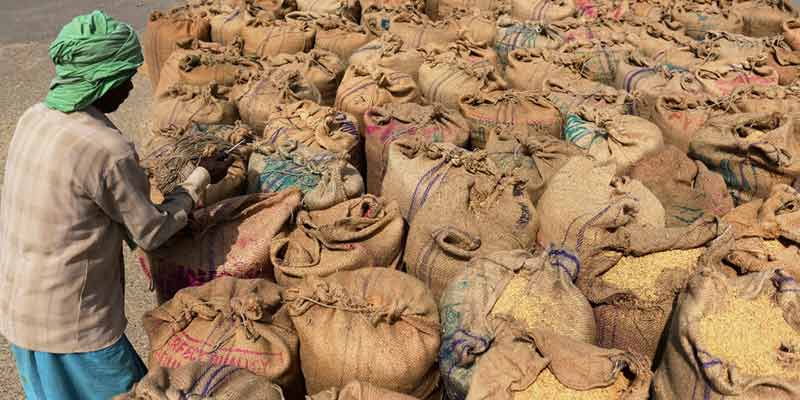- India
- Sep 12
What is Open Market Sale Scheme (OMSS)?
The Food Corporation of India (FCI) has sold 1.66 lakh tonnes of wheat and 17,000 tonnes of rice from the central pool through 11th e-auction last week as part of the Open Market Sale Scheme (OMSS) to control retail prices.
Last month, the government announced it will offload an additional 50 lakh tonnes of wheat and 25 lakh tonnes of rice from the central pool in the open market to bulk buyers to contain cereal prices.
In the 11th e-auction held on September 6, a total of 2 lakh tonnes of wheat from 500 depots and 4.89 lakh tonnes of rice from 337 depots were offered from across the country.
Open Market Sale Scheme
• In addition to maintaining buffer stocks and for making a provision for meeting the requirement of the National Food Security Act (NFSA) and Other Welfare Schemes (OWS), the Food Corporation of India (FCI) on the instructions from the government sells excess stocks out of central pool through Open Market Sale Scheme (Domestic) in the open market from time to time at pre-determined prices.
Objectives of OMSS are:
i) To offload the excess stocks.
ii) To reduce the carrying cost of foodgrains.
iii) To enhance the supply of foodgrains during the lean season and deficit regions.
iv) To moderate the open market prices.
• OMSS(D) policy is reviewed and revised from time to time based on the stock position in the central pool.
Food Corporation of India
• The Food Corporation of India (FCI) was established on 14 January, 1965 under the Food Corporations Act, 1964.
• FCI is a PSU under the department of food and public distribution in the ministry of consumer affairs, food and public distribution.
• The FCI is the main agency responsible for execution of food policies of the government.
• The functions of FCI primarily include purchase, storage, movement, distribution and sale of foodgrains on behalf of the government.
Objectives of FCI:
i) Effective price support operations for safeguarding the interests of farmers.
ii) Distribution of foodgrain throughout the country for public distribution system.
iii) Maintaining a satisfactory level of operational and buffer stocks of foodgrain to ensure national food security.
• Since its inception, FCI has played a significant role in India’s success in transforming the crisis management oriented food security into a stable security system.
• The Quality Control (QC) wing of FCI is entrusted with the task of procurement and preservation of foodgrains. The foodgrains are procured as per specifications laid down by the government and inspected regularly during storage to monitor the quality. Representative samples of the stock are drawn for physical and chemical analysis to ensure whether the quality standard meets the parameters laid down by the government as well as Food Safety and Standards Authority of India (FSSAI).
Manorama Yearbook app is now available on Google Play Store and iOS App Store

